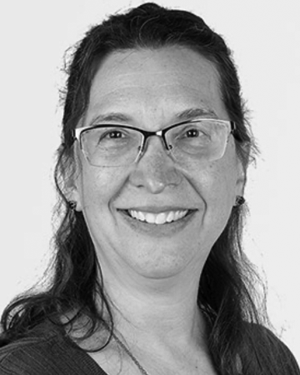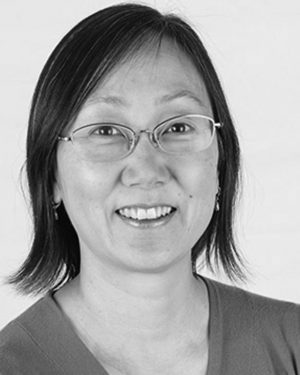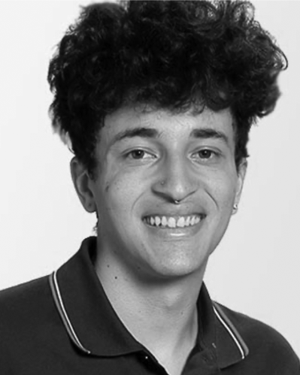Abstract:
Sensor systems have the potential to make abstract science phenomena concrete for K-12 students. Internet of Things (IoT) sensor systems provide a variety of benefits for...Show MoreMetadata
Abstract:
Sensor systems have the potential to make abstract science phenomena concrete for K-12 students. Internet of Things (IoT) sensor systems provide a variety of benefits for modern classrooms, creating the opportunity for global data production, orienting learners to the opportunities and drawbacks of distributed sensor and control systems, and reducing classroom hardware burden by allowing many students to “listen” to the same data stream. To date, few robust IoT classroom systems have emerged, partially due to lack of appropriate curriculum and student-accessible interfaces, and partially due to lack of classroom-compliant server technology. In this article, we present an architecture and sensor kit system that addresses issues of sensor ubiquity, acquisition clarity, data transparency, reliability, and security. The system has a dataflow programming interface to support both science practices and computational data practices, exposing the movement of data through programs and data files. The IoT Dataflow System supports authentic uses of computational tools for data production through this distributed cloud-based system, overcoming a variety of implementation challenges specific to making programs run for arbitrary duration on a variety of sensors. In practice, this system provides a number of unique yet unexplored educational opportunities. Early results show promise for Dataflow as a valuable learning technology from research conducted in a high school classroom.
Published in: IEEE Transactions on Learning Technologies ( Volume: 14, Issue: 2, 01 April 2021)
Funding Agency:

Concord Consortium, Concord, MA, USA
Leslie G. Bondaryk received the B.S. degree from the Massachusetts Institute of Technology, Cambridge, MA, USA, in 1988, and the M.S. degree from the University of California, Santa Barbara, Santa Barbara, CA, USA, in 1990, both in electrical engineering.
She is currently the Director of Technology with the Concord Consortium, Concord, MA, USA. From 1992 to 2020, she introduced new technologies to educational research and ...Show More
Leslie G. Bondaryk received the B.S. degree from the Massachusetts Institute of Technology, Cambridge, MA, USA, in 1988, and the M.S. degree from the University of California, Santa Barbara, Santa Barbara, CA, USA, in 1990, both in electrical engineering.
She is currently the Director of Technology with the Concord Consortium, Concord, MA, USA. From 1992 to 2020, she introduced new technologies to educational research and ...View more

Sherry Hsi received the B.S., M.S., and Ph.D. degrees in engineering science, mechanical engineering, and science education from the University of California Berkeley, Berkley, CA, USA, in 1986, 1988, and 1997, respectively.
She has conducted design-based research, evaluation studies, and learning technology design for more than 30 years working in science centers, out-of-school settings, and in middle and secondary school...Show More
Sherry Hsi received the B.S., M.S., and Ph.D. degrees in engineering science, mechanical engineering, and science education from the University of California Berkeley, Berkley, CA, USA, in 1986, 1988, and 1997, respectively.
She has conducted design-based research, evaluation studies, and learning technology design for more than 30 years working in science centers, out-of-school settings, and in middle and secondary school...View more

Concord Consortium, Concord, MA, USA
Seth Van Doren received the B.A. degree in chemistry (with a minor STEM education) from the University of California Berkeley, Berkeley, CA, USA, in 2019.
He was a Research Assistant with Lawrence Berkeley National Laboratory and the Berkeley Cal Teach program, Berkeley, primarily studying the effects of undergraduate research experiences on STEM identity development. From 2019 to 2020, he was a Research Associate with Con...Show More
Seth Van Doren received the B.A. degree in chemistry (with a minor STEM education) from the University of California Berkeley, Berkeley, CA, USA, in 2019.
He was a Research Assistant with Lawrence Berkeley National Laboratory and the Berkeley Cal Teach program, Berkeley, primarily studying the effects of undergraduate research experiences on STEM identity development. From 2019 to 2020, he was a Research Associate with Con...View more

Concord Consortium, Concord, MA, USA
Leslie G. Bondaryk received the B.S. degree from the Massachusetts Institute of Technology, Cambridge, MA, USA, in 1988, and the M.S. degree from the University of California, Santa Barbara, Santa Barbara, CA, USA, in 1990, both in electrical engineering.
She is currently the Director of Technology with the Concord Consortium, Concord, MA, USA. From 1992 to 2020, she introduced new technologies to educational research and publishing projects across computer science, mathematics, engineering, and sciences, including the first Web Calculus text, The Analytical Engine Online (PWS Publishing, 1998), and Schaum's Interactive Outline Series (McGraw Hill, 1994–2000). She is the author of papers, articles, and book chapters on technology adoption in traditional classrooms, citizen science, and more recently on collaborative technologies in STEM software. Her research interests include data visualization, collaborative learning technologies, and novel interfaces to communicate modeling concepts.
Leslie G. Bondaryk received the B.S. degree from the Massachusetts Institute of Technology, Cambridge, MA, USA, in 1988, and the M.S. degree from the University of California, Santa Barbara, Santa Barbara, CA, USA, in 1990, both in electrical engineering.
She is currently the Director of Technology with the Concord Consortium, Concord, MA, USA. From 1992 to 2020, she introduced new technologies to educational research and publishing projects across computer science, mathematics, engineering, and sciences, including the first Web Calculus text, The Analytical Engine Online (PWS Publishing, 1998), and Schaum's Interactive Outline Series (McGraw Hill, 1994–2000). She is the author of papers, articles, and book chapters on technology adoption in traditional classrooms, citizen science, and more recently on collaborative technologies in STEM software. Her research interests include data visualization, collaborative learning technologies, and novel interfaces to communicate modeling concepts.View more

Sherry Hsi received the B.S., M.S., and Ph.D. degrees in engineering science, mechanical engineering, and science education from the University of California Berkeley, Berkley, CA, USA, in 1986, 1988, and 1997, respectively.
She has conducted design-based research, evaluation studies, and learning technology design for more than 30 years working in science centers, out-of-school settings, and in middle and secondary school classrooms. She is the co-author of Computers, Teachers, Peers: Science Learning Partners, Routledge, U.K., in 2000. She is currently a Principal Scientist at BSCS Science Learning, Colorado Springs, CO, USA, and the Principal Investigator of several National Science Foundation-supported research projects with an interest in supporting inquiry-based STEM education, tinkering, and agentive learning among youth.
Dr. Hsi was an Associate Editor for the Journal of the Learning Sciences.
Sherry Hsi received the B.S., M.S., and Ph.D. degrees in engineering science, mechanical engineering, and science education from the University of California Berkeley, Berkley, CA, USA, in 1986, 1988, and 1997, respectively.
She has conducted design-based research, evaluation studies, and learning technology design for more than 30 years working in science centers, out-of-school settings, and in middle and secondary school classrooms. She is the co-author of Computers, Teachers, Peers: Science Learning Partners, Routledge, U.K., in 2000. She is currently a Principal Scientist at BSCS Science Learning, Colorado Springs, CO, USA, and the Principal Investigator of several National Science Foundation-supported research projects with an interest in supporting inquiry-based STEM education, tinkering, and agentive learning among youth.
Dr. Hsi was an Associate Editor for the Journal of the Learning Sciences.View more

Concord Consortium, Concord, MA, USA
Seth Van Doren received the B.A. degree in chemistry (with a minor STEM education) from the University of California Berkeley, Berkeley, CA, USA, in 2019.
He was a Research Assistant with Lawrence Berkeley National Laboratory and the Berkeley Cal Teach program, Berkeley, primarily studying the effects of undergraduate research experiences on STEM identity development. From 2019 to 2020, he was a Research Associate with Concord Consortium, Concrod, MA, USA. He is currently a Research Assistant with the BSCS Science Learning, Colorado Springs, CO, USA. His research interests include authentic STEM investigations in K–12 settings, social learning, and increasing student epistemic agency.
Seth Van Doren received the B.A. degree in chemistry (with a minor STEM education) from the University of California Berkeley, Berkeley, CA, USA, in 2019.
He was a Research Assistant with Lawrence Berkeley National Laboratory and the Berkeley Cal Teach program, Berkeley, primarily studying the effects of undergraduate research experiences on STEM identity development. From 2019 to 2020, he was a Research Associate with Concord Consortium, Concrod, MA, USA. He is currently a Research Assistant with the BSCS Science Learning, Colorado Springs, CO, USA. His research interests include authentic STEM investigations in K–12 settings, social learning, and increasing student epistemic agency.View more


